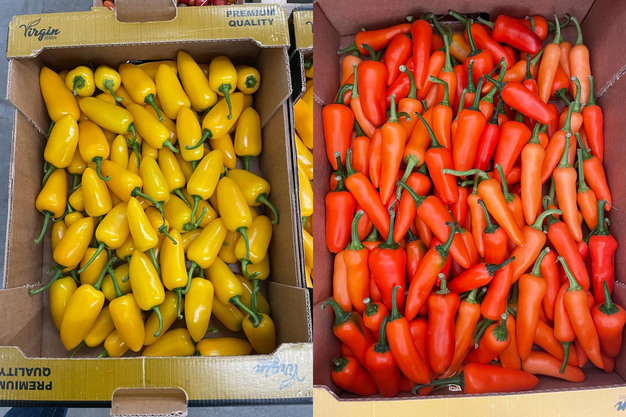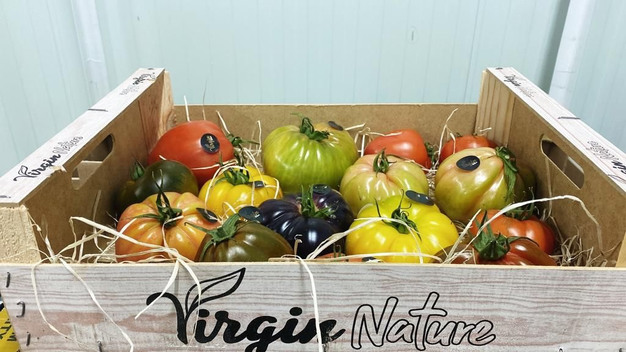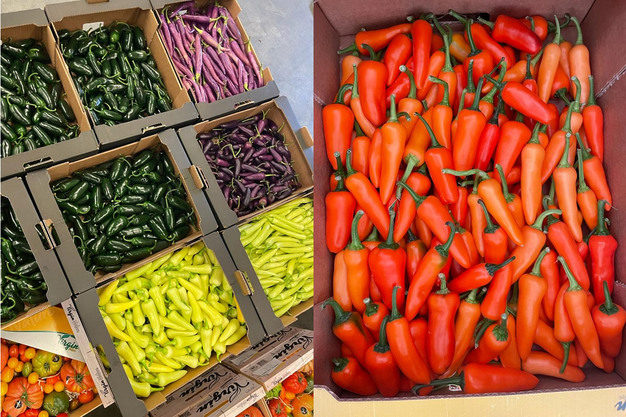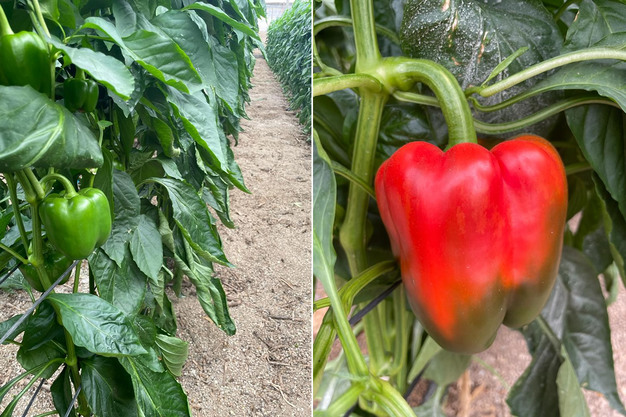The Spanish greenhouse vegetable season's start has, in the past, sometimes been less promising. "Considering, say, bell peppers, given that the Netherlands was on the market until two weeks ago, those prices have been good," begins Marco Romein of Agrogestion Alboran.
After leaving a Dutch company, he now immerses himself in marketing Spanish growers' products. "That's undoubtedly a different way than buying from cooperatives. We seek out the best growers. Our full-time, in-house inspector visits all of them so we can offer the freshest products. We've built something truly wonderful."

"We work purely per demand. A great example is yellow zucchini, a crop of limited size in Spain. We planted a few rows of these in the greenhouse two years ago. That trial went well. Last year, we had the first commercial volumes available, which went satisfactorily both cultivation and sales-wise," says Marco.

"This year, we expanded that acreage to 5,000 m2. Israel usually supplies yellow zucchini in the winter. But because of the war, we expect less from there. We grow the yellow zucchini entirely in-house in our greenhouse. The grower is responsible for the cultivation, and we do the marketing. Next week, we'll harvest the first of these."

"Those zucchinis are a new addition to our specialties package, ranging from Habanero and Jalapeño peppers and yellow cherry and Monterossa tomatoes. Mini cucumber cultivation is also becoming a growing item in Spain. We also sell standard greenhouse vegetables such as tomatoes, cucumbers, eggplants, and bell peppers," Marco explains.
"Though, after all these years, I'm very familiar with bell pepper marketing. With the new crops, I learn every day. We use these specialties to distinguish ourselves well on the market. Many of our growers harvest to order and package in the greenhouse. So, our customers are guaranteed a fresh product, with minimal chain costs."

"Despite more cucumbers and TOVs being grown under lights in the Netherlands this year, Spanish growers haven't planted noticeably fewer cucumbers. They always do their own thing. There do seem to be fewer bell peppers in Spain this year, but our growers have gone against the grain and expanded a little," Marco continues.
"We should, thus, have reasonably good volumes at our disposal this season. We can cover our fixed costs with the fixed programs. From a service perspective, we keep a small stock in the Netherlands. However, we don't speculate, nor do we need large day trading volumes to keep things going."

Tomato cultivation has steadily been declining in Spain for years. "Initially due to pressure from Morocco's lower cost price, but virus pressure also keeps hanging over the market. That virus has now hit Moroccan growers hard, too," Romein says. "Plus, that market has recently proven politically erratic, with export limitations and restrictions. That generally brought more balance to the Spanish tomato market."

"Most of our Dutch clients are exporters who, in turn, primarily serve overseas and ethnic customers. We focus on the group wanting to build something with a fixed brand and consistent quality. For buyers wanting specific products, but also, for instance, specific sizes, we go out and organize it. That's also how we started with the yellow zucchini. My background in the processing industry means we have the lines we need for processing plants. That's mostly contract work, so we have a nice marketing mix," Marco concludes.

 For more information:
For more information:
Marco Romein
Agrogestion Alboran
Mob: +31 (0) 653 472 270
Email: [email protected]
www.agrogestionalboran.es










